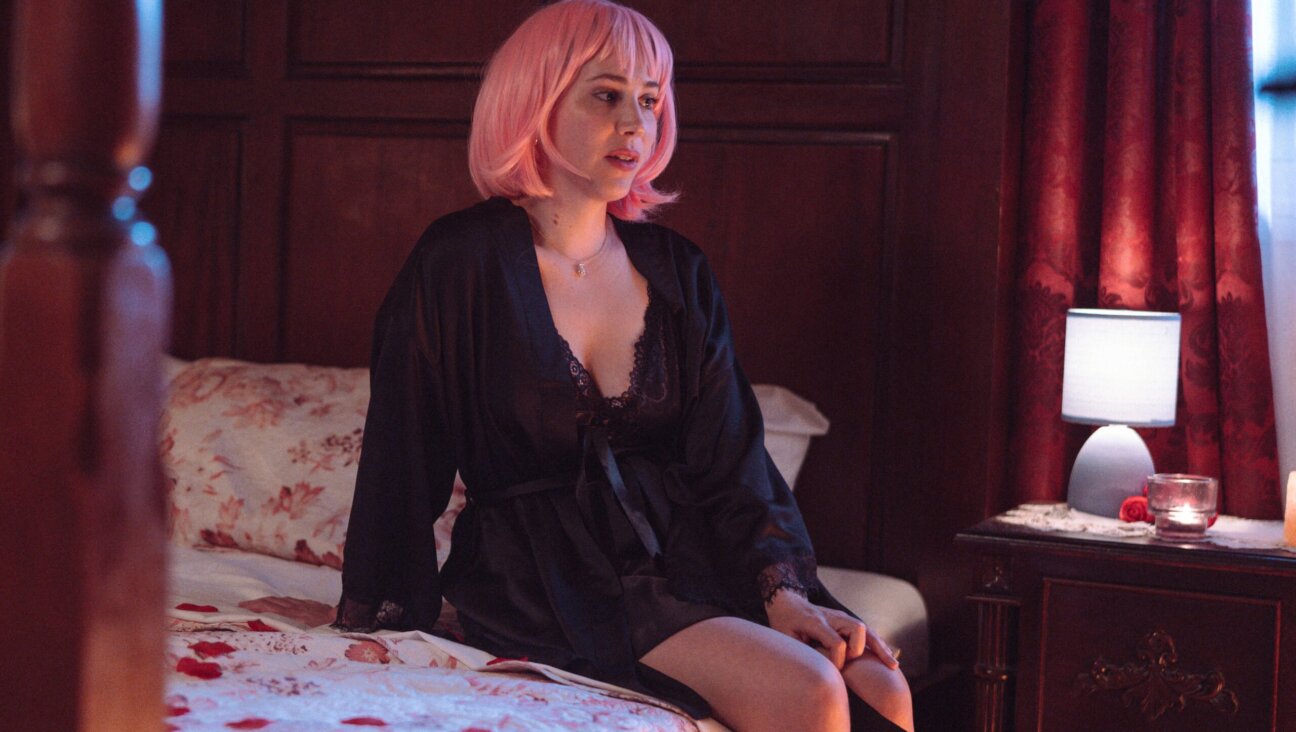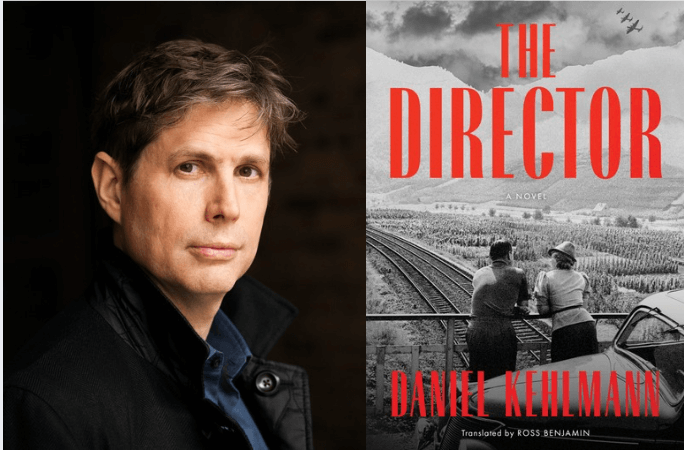Jewish Revenge Porn

Graphic by Angelie Zaslavsky

Three Strikes and the Nazi Is Out: Jewish soldiers take revenge on the Third Reich. Image by THE WEINSTEIN COMPANY
Quentin Tarantino’s “Inglourious Basterds” (complete with unexplained directorial spelling caprice) is pure Cineplex whimsy where bloodthirsty Jewish soldiers destroy the Third Reich, gleefully giving their tormentors a taste of their own medicine.
Eli Roth who plays Sergeant Donny Donowitz, aka The Bear Jew, quickly embraced Tarantino’s wild re-imagining of history, which premiered at the Cannes International Film Festival May 20. As Hitler’s worst nightmare and baseball’s most brutal ambassador, Donowitz quite literally swings a bat to bash in the brains of the Nazis.
Like many of the actors chosen by Tarantino, Roth stands out in his role. But as one of the few Jews in the cast, Roth felt it was his mission to supply Tarantino with the perspective of his faith. He invited his friend the director to a Seder with his parents. On the menu was a briefing on Jewish persecution, from slavery in ancient Egypt to the Holocaust.
“I’ve been waiting for a project like this since I was a kid,” Roth said during a Festival interview with the Forward, at the Carlton Hotel. “Of course, it is a Jewish fantasy, but there is a real wishful feeling that we could go back in history and sacrifice ourselves to kill Nazis.”
“I like to think that if I had the opportunity to bring down the Third Reich, I would have done it,” German-born costar Diane Kruger chimed in.
Nary a textbook has been consulted for “Inglourious Basterds,” but the film teems with the movie references Tarantino loves. This is an unapologetic reinvention of history stretched to the limit of artistic license. Roth himself, perhaps best known as the director of the sadism-packed 2005 “Hostel,” which many have dubbed “torture porn,” can relate to this tendency to lean on artistic license. He joked during a press conference that, for him, “Inglourious Basterds” was “kosher porn, something I have been fantasizing about for a long time.”
The movie begins with Nazi colonel Hans Landa (Christoph Waltz) visiting the farm of a Frenchman suspected of hiding Jews. A subtle interrogation turns frightening, and Nazis are soon peppering the floorboards with bullets, killing all of a hidden family except a teenage girl, Shosanna Dreyfus (Mélanie Laurent). We later find her in Paris as the owner of a movie theater, under a fake identity, brewing her own scheme of retribution. Laurent, who visited Auschwitz before she was on board for the project, felt so close to her character that it was difficult for her “to see everyday these terrifying uniforms of Nazis on the set, even if inside the costume there was a great human being.”
Shosanna hatches a plan to burn Hitler and his henchmen alive at a movie premiere in her theater. The Basterds, a squad of Jewish soldiers led by the Lieutenant Aldo Raine (Brad Pitt), aka Aldo the Apache, embark on their own payback for opening night, with the help of the German actress Bridget Von Hammersmark (Kruger). The Basterds had kept busy mounting guerrilla attacks, collecting Nazi scalps to instill fear among the Aryan rank and file and dent the Reich’s propaganda machine.
“Quentin asked me if Shosanna could ever forgive the Nazis,” Roth recalled. “I told him: ‘Are you kidding? We don’t forgive, we collect interest. We get more angry.’”
“There is a real human feeling of wishing to go back into the past,” he added. “Many Americans and people all over the world have fantasies to have had a role on September 11, and would have just grabbed the hijackers and beat them to death. This movie gives you this satisfaction. It’s about that emotion and also how cinema can give you this feeling.”
The movie conjures all kinds of political analogies, including the ongoing conflict in the Middle East. Roth toes a diplomatic line, saying we all want peace in the region. Just exactly what is going on there is difficult for observers from as far away as the United States to determine, he says. What’s important is that the active quest for peace continues on all sides. In its own cinematic way, “Inglourious Basterds” can play a positive role.
“Art can raise discussion and keep the discussion alive,” the actor said.
For his part, Tarantino emphasized to reporters that he made a movie “for planet Earth” that is in no way a commentary on tensions anywhere. His overarching message is that cinema can save the world: “A Jewish revenge fantasy wouldn’t be necessarily the section where I would put it in a video store. There are aspects of that, but more than anything else, my characters change the outcome of the world.”
On a practical front, “Inglourious Basterds” served as the glitz-downsized festival’s one big bang. Big American Director in Quentin Tarantino. Big American Movie Star in Brad Pitt. And enough violence to provide catharsis for a gathering looking to escape the global economic straitjacket.
The movie received a mixed critical reception. Gutsy and imaginative, one side crowed. Pointless and stuffed with gore, the other shot back. Some critics wondered if a summer action movie had a right to reinvent history, especially something as sacred as the Holocaust.
A true account of Jews who fought back, “Defiance,” premiered last December with modest success. Tarantino’s intentionally over-the-top Spaghetti Western is expected to grab more attention when it is scheduled to open in August.
The movie almost never happened. Tarantino was about to publish the script because he couldn’t find the appropriate actor to portray Landa. When all seemed lost, he met with Waltz, who created one of the shrewdest, cruelest Nazis ever to chew up a screen. Landa is affable, polite, cultured, speaks several different languages and claims that he is the only one among the Nazis who can think like a Jew. He is proud of his prowess and of his nickname, “The Jew Hunter.” It’s nothing personal — he just kills Jews efficiently and enjoys it. Waltz won the festival’s best actor award, ensuring some official festival recognition for “Inglourious Basterds.”
“It’s the power of cinema that brings down the Third Reich,” Tarantino likes to repeat. And that’s perhaps the greatest reward for the “Inglourious Basterds” audience: the vicarious thrill of watching underdogs slaughter one of history’s most sinister enemies. No mercy. No remorse. And all from the comfort of a cushy seat with a cup holder.
Karine Cohen-Dicker is a French journalist who currently lives in New York.





















